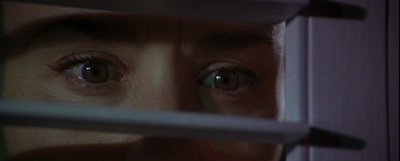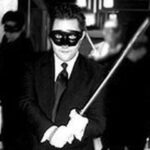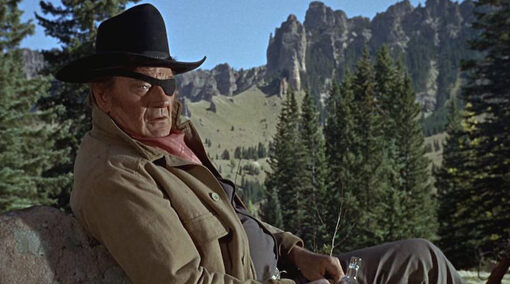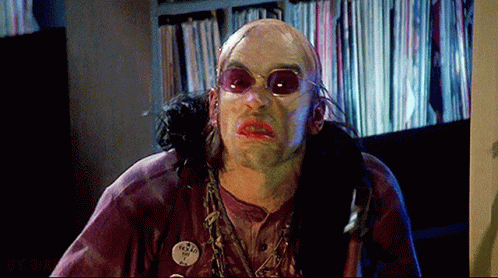Following his role in J. Lee Thompson’s 1962 psychological thriller Cape Fear actor Gregory Peck was in Robert Mulligan’s classic drama TO KILL A MOCKINGBIRD (1963, USA). In that film, Peck played a small town southern lawyer who represents a black man in a controversial court case. He was brilliant as the gentle loving father and upstanding public servant who evoked American historical figures like Abraham Lincoln and it was one of his greatest performances.

Peck plays a similar role in Cape Fear, another lawyer but this time he’s faced with the wrath of a man he helped put in prison after stopping a rape and testifying against him. Robert Mitchum plays the man in question, Max Cady, a bad ol’ southern boy/psychotic brute. When he’s released from jail after 8 years, his main goal is to get revenge on Bowden. He quickly sets his sights on him, his wife Peggy (Polly Bergen) and their young daughter Nancy (Lori Martin). He stalks them (even killing their dog) and slowly and steadily turns Bowden’s life upside down. Bowden’s friend Mark Dutton (Martin Balsam) a police chief offers to help but they can’t prove Cady guilty since he’s been careful on covering his tracks. Bowden decides to hire a private eye (Telly Savalas) to keep tabs on Cady but he doesn’t get many results from his efforts.
The film is filled with suspense and the confrontations between Bowden and Cady are memorable and electric. Peck being the stoic pillar of justice, and Mitchum rattling in the shadows only coming out to strike like a poisonous snake. For its time, I think this film was an extremely effective psychological noir thriller. Yet its remake, or re-interpretation 30 years later would take this tale and turn it into something much more enthralling and exciting…
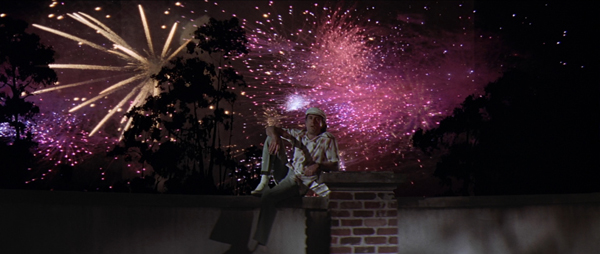
I actually saw Martin Scorsese’s remake of Cape Fear (1991) before I had seen the 1962 version and personally it’s the one I prefer out of both. In this new take on the story, Max Cady is played by Robert DeNiro. He is covered in tattoos (mostly religious themed) and it turns out he is a “pentacostal cracker” as is stated in the film. His family are those people that speak in tongues and dance around with snakes in church. In Roger Ebert’s original review of this film, he stated that he thought DeNiro’s Cady was inspired more by Mitchum’s Rev. Harry Powell from The Night of The Hunter than his portrayal of Max Cady. I’ve always felt this was a very interesting point and one I think makes complete sense seeing Scorsese is a huge fan of that film.
What I love most about this modern retelling is the fact it is not simply black and white (both literally and thematically speaking), it’s filled with shades of gray. Martin Scorsese does an inversion of the original turning the Bowden’s, who are portrayed as the classic All American family into people that have already been corrupted in different ways. There is no wholesome feeling to their lives, it’s already in a state of conflict before Cady even arrives and when he does he simply chips away at the crumbling core. Nick Nolte’s Sam Bowden is shown to be a bit of a womanizer as we see him flirting with his co-worker Laurie (Illeana Douglas) in the beginning of the story. We also find out that he represented Cady in court and due to Cady being illiterate (at the time) he was not able to read the background files of his victim which stated she was promiscuous. Bowden covered it up because he was disgusted by Cady’s violence towards women. This detail could’ve gotten Cady a lesser sentence or acquitted, so in another departure from the original, he is actually in the right to want to seek revenge after 14 years of unjust confinement. Meanwhile, Bowden’s wife Leigh (Jessica Lange), a graphic designer, has had her own issues with depression and their daughter Danielle (Juliette Lewis) is ditzy bordering on mildly retarded. We get the sense that neither Leigh nor Danielle have alot of trust or respect for Sam, thus when Cady later infiltrates their lives and focuses on them with an intensity, he almost has a strange kind of unstated attraction for them. Robert DeNiro brings an immense amount of depth to his role, turning Cady from a slow drawling thug (as played by Mitchum) into a bible passage spouting, wannabe supervillain that has forged himself into an unholy vessel of revenge. Look closely at his prison cell wall at the opening of the movie, he’s got images of historical figures next to cut outs of characters like Black Bolt from The Inhumans (Marvel Comics) series.
Not only are the performances outstanding in this film but Scorsese’s visual aesthetic is highly stylized, extremely visceral and very compelling to watch especially if you love “movie movies”. It is also filled with a variety of symbolic imagery and neat camera tricks. Look for when Cady is sitting on the Bowden’s brickwall as 4th of July fireworks go off overhead, it’s reminiscent of a scene with Mitchum in The Night of the Hunter. The film brings to mind classic suspense by Hitchcock, the horror films of Hammer Studios (via cinematographer Freddie Francis), gothic and giallo cinema by Italian directors like Mario Bava and Dario Argento as well as psychological thrillers by Brian DePalma like DRESSED TO KILL (1980). In a homage to the original film, Scorsese has cameos from Peck as a slimy lawyer who Cady hires, Martin Balsam as a judge and Mitchum as a police detective.
On BluRay: Cape Fear (remake) | Cape Fear (original)

